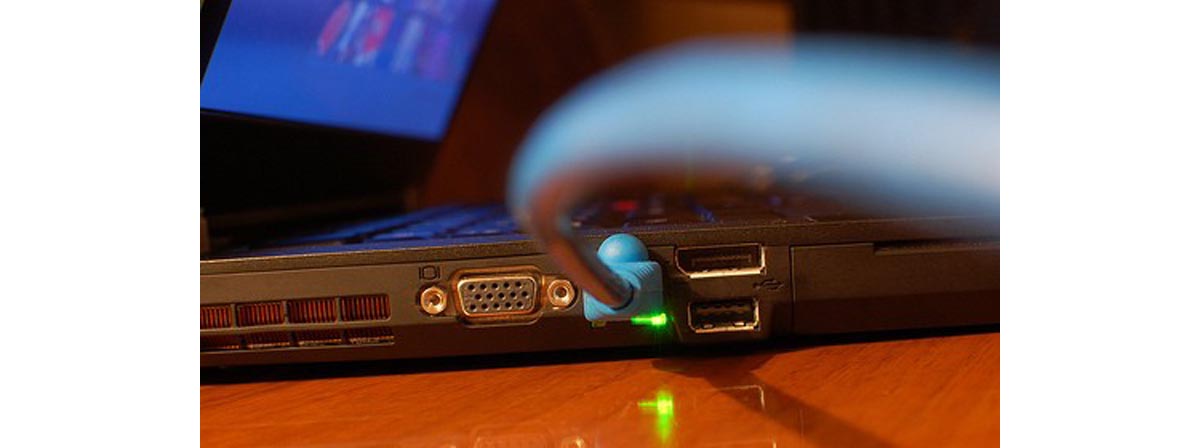Can you imagine what your life would be like without the Internet? The Internet brought the thrill of instant information into our lives — as well as instant enjoyment, instant drama, and instant stress. What would happen to all the numerous Google searches we all do in one single day without the Internet, and how would we communicate with people? The Internet is one of the most widely accessible media today.

How the internet is changing your brain
In 2011, the Science magazine published the results of an experiment, which showed that college students remembered less information when they knew that the information could later easily be accessed on the computer. Instead of relying on our brains to store information long-term, we now rely on Google to store the information.
Author Nicholas Carr notes that every time we use the Internet, it is like reading a book while doing a crossword puzzle. In his book, The Shallows: What the Internet is Doing to our Brains, Carr argues that even though people get better at switching pages, they begin to lose their ability to employ a more slow and contemplative mode of thought.
Internet use improves brain function in older people
Using the Internet boosts brainpower in older people, however, according to a team of researchers at the University of California, Los Angeles. They found that key centers of the brain that control decision making and reasoning are triggered while Internet searching, probably improving brain function.
Dr. Gary Small, the lead researcher says, “Internet searching engages complicated brain activity, which may help exercise and improve brain function.” He added that our brains are malleable and change in response to the environment. The brain is sensitive and learning at any age stimulates the brain.
In older people, a number of changes occur as the brain ages, causing it to shrink and lose power. The atrophy and reduced cell activity can affect cognitive ability. Activities such as crossword puzzles that stimulate the brain help reduce the impact of age on the brain and preserve brain function. The researchers compare Internet usage and brain stimulation similar to activity doing crossword puzzles.
Digital natives and digital immigrants
Digital natives and digital immigrants form part of the generation gap today. Digital natives are people who were born into a technological world of electronic gadgets where laptops and cell phones are constantly used for communicating. This group spends over eight hours daily on digital technology, and has never considered any other possibility. To this generation, the internet is their native habitat; the place where they are home.
The bright side is that the digital exposure this generation experiences is rewiring their brain’s neural network and improving skills of reasoning and decision. However, the Internet is diminishing their “people skills”, including empathy and the ability to socialize confidently in-person.
Digital immigrants, who have not always lived in this hyper-connected world and remember a time dominated by the land line telephone, fax, and CD player, have to work hard to accept the new technology because they were born into a world of pocket calendars and letters sent in the mail. They often catch up quickly, but will never be quite as at home in the digital world as the later generations.
Internet Addiction Disorder (IAD)
With the advent of the Internet, Internet Addiction Disorder is an emerging cause of morbidity and problematic computer use. It is a growing social issue and in its wake, addiction to the Internet is causing neurological complications, psychological disorders, and social problems.

Although traditionally the concept of addiction described a physical dependency to a substance, it is applied to overuse of the Internet. Some of the terms used to describe the behavior include “Internet addiction,” “pathological Internet use,” and “problematic Internet use.”
Two schools of thought have emerged in the debate, i.e. those who believe that the Internet addiction qualifies for classification as a new and emerging psychiatric disorder, and others who classify certain individuals with problematic Internet use in relation to online activities such as gambling or pornography. Individuals with a history of addictive disorders are especially at risk of using the Internet in a problematic way.
Studies to research Internet addiction have largely focused on digital natives, primarily adolescent and young adults, those who had grown up in a well-developed Internet environment.
Internet addiction and psychiatric disorders
The growing concern has researchers proposing diagnostic criteria for problematic Internet use and inclusion in the Diagnostic and Statistical Manual of Mental Disorders, Fifth Edition (DSM-V). A large percentage of individuals with IAD reportedly present with some other psychiatric disorder. Individuals with hypomania, bipolar I disorder, general anxiety disorder, obsessive-compulsive personality disorder, and borderline personality disorder, and substance abuse disorder are more likely to be associated with IAD.
This association between IAD and psychiatric disorders provides insight into treatment and prevention for IAD. Since these disorders predispose individuals to IAD, appropriate screening and treatment may prevent emergence of IAD.
Negative effects on personal life
The Internet is a common leisure activity and individuals turn to it to cope with emotional and social difficulties. IAD decreases social communication and individuals develop problems in their interpersonal relationships. The Internet is taking away the need for human conflict and not deal with issues that need personal discussions. Conflict resolution is a part of our life and should not be avoided. Internet addiction might lead to loneliness, perhaps because the Internet has reduced the existing social support system.
Risk factors for internet addiction among teenagers
Stress, lack of social support, other addictions, depression, and anxiety are all risk factors for IAD. Unsupervised Internet use may lead teenagers to create personal pages and post real identities, pictures, and profiles leading to safety risks such as meeting someone with whom they only chatted on the Internet or communicating with an adult who was pretending to be much younger.
Studies suggest that teenagers and young adults who spend hours on the Internet are prone to engage in self-harming behaviors like suicidal attempts, have lower levels of self-esteem, and experience a decline in their social and psychological well-being.
- Han DH et al. Brain activity and desire for Internet video game play. Compr Psychiatry. 2011 Jan-Feb, 52(1):88-95
- Cash H et al. Internet Addiction: A Brief Summary of Research and Practice. Curr Psychiatry Rev. 2012 Nov, 8(4):292-298
- Bernardi S, Pallanti S. Internet addiction: a descriptive clinical study focusing on comorbidities and dissociative symptoms. Compr Psychiatry. 2009 Nov-Dec, 50(6):510-6.
- Ko CH et al. The association between Internet addiction and psychiatric disorder: a review of the literature. Eur Psychiatry. 2012 Jan, 27(1):1-8
- Yellowlees PM, Marks, S. Problematic Internet use or Internet addiction? Comp Hum Behav. 2007 (23): 1447-1453.
- Photo courtesy of Great Valley Center by Flickr : www.flickr.com/photos/greatvalleycenter/7264784614/
- Photo courtesy of Vladimir Yaitskiy by Flickr : www.flickr.com/photos/kronny/8214497287/
- www.gov.mu/portal/sites/cert/sid2012/Psychological%20Impact%20of%20Internet%20usage%20on%20Children.pdf
- iml.jou.ufl.edu/projects/spring03/mentzer/disadvantages.htm
- academicearth.org/electives/internet-changing-your-brain/
- www.psychologytoday.com/blog/hidden-motives/201009/the-internet-and-the-brain
- www.today.ucla.edu/portal/ut/PRN-081015_gary-small-ibrain.aspx
- lateralaction.com/articles/internet-brain/
- www.theguardian.com/technology/2010/aug/15/internet-brain-neuroscience-debate
- news.bbc.co.uk/2/hi/7667610.stm
- www.npr.org/templates/story/story.php?storyId=127370598
- www.huffingtonpost.com/shaahin-cheyene/internet-brain_b_1248845.html

